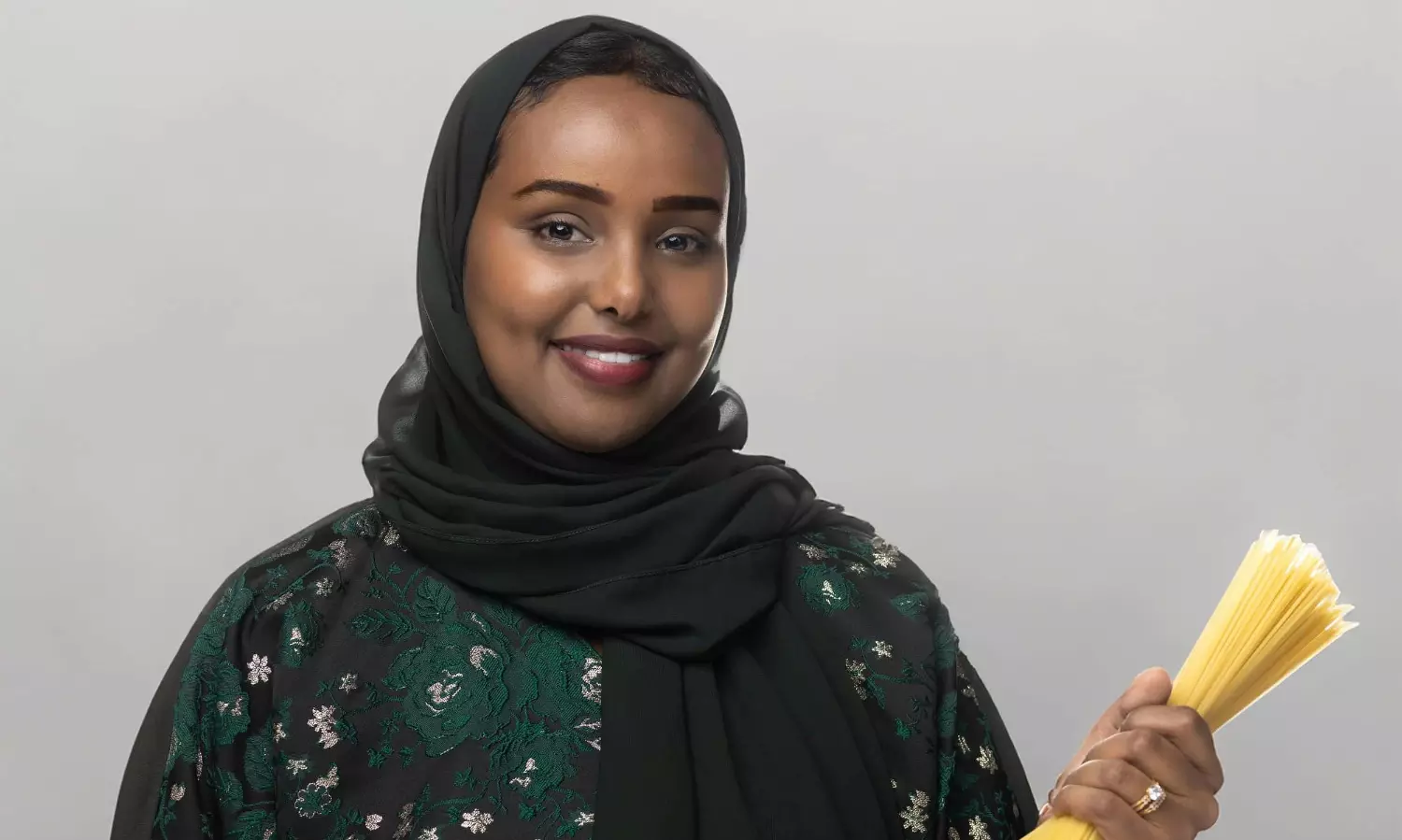New food brand for Africa crossing borders with Kuehne+Nagel
Food brands with women's names work well in Africa, conveying a nostalgic coziness of grandma’s home cooked meals

Hamdi with her pasta brand Nana's. Photo Credit: Kuehne+Nagel
Hamdi, a Zambia-raised and Dubai-based businesswoman, has a clear vision: establish a new food brand in Africa.
A memorable milestone for Hamdi was the day that the first three containers with her pasta brand Nana’s arrived in Zambia.
"It was Kuehne+Nagel’s team in East Africa that managed the customs clearance at the port of Dar-es-Salaam and the subsequent three-day truck journey to Lusaka. Meanwhile, many more containers are in transit," says a release from Kuehne+Nagel.
Hamdi has the vision and the market knowledge but the nitty gritty details of the complex cross-border logistics had been a roadblock for Hamdi’s ability to focus on growth. Until she chose Kuehne+Nagel as a logistics partner, the release added.
Cooking up a vision: Nana’s
1.7mm is the preferred spaghetti noodle circumference in Zambia, Kenyans tend to go for 1.3mm while Somalians enjoy their noodles one millimetre thinner, the release added. "With an array of preferences, one thing is certain: East-Africans are united in their love for pasta. The average Somalian family eats it five days per week.
“I entertained the idea for a long while, until I thought: ‘It is easy to think. Let’s act,” says Hamdi.
Food brands with women's names work well in Africa, conveying a nostalgic coziness of grandma’s home cooked meals. Nana’s it would be, the release added.
Logistics - the challenge
Zambia, the country where she grew up, seemed the perfect market to test her idea. She found a pasta supplier in Egypt and spent a week calculating the budget including shipping a container to Zambia. In parallel, she used her network in Zambia to find buyers.
"This turned out to be a relatively expensive experiment for a one-woman show. She recruited investors amongst family and friends. Many believed in her idea, and shortly afterwards, her first container was on its way.
And with it, the logistic challenges started. “Turns out that ignorance is expensive,” says Hamdi.
It was this moment she began to realise how complex logistics is. Several challenges occurred, like a container stuck in transit due to missing customs documentation. Mishaps that can cost a fortune for a small business, the release added.
"With her vision for Nana’s to be on the shelves of supermarkets in all African countries, the logistics of it all would get complicated. A business confidant told her to reach out to Kuehne+Nagel, so that she could focus on expanding to new markets. She called the office in Dubai. Soon she was in touch with Moses from Kuehne+Nagel Tanzania."
Hamdi says: “I was new to logistics in Africa. I had never considered that each country has different regulations which makes border crossings a complex undertaking.”
Enter Kuehne+Nagel
Today, Kuehne+Nagel's team handles Hamdi’s cross-border road logistics flows. In Africa, roads are often the only way to supply landlocked countries with everything they might need, including Nana’s. The harbours in Tanzania and Kenya serve as the entry points. From there, Kuehne+Nagel in Africa manages trucking routes with delivery points in Uganda, Congo, Zambia, Malawi, Rwanda and Burundi. They also take care of customs clearance, the release added.
"For the moment, Nana’s is being delivered to several hubs in Zambia and Congo: cities where Nana’s already can be found on store shelves in select grocery shops. Another ten containers are to arrive at the Dar-Es-Salaam port shortly while Hamdi is looking for buyers in other African countries."
Hamdi says: “What’s great is that I don’t have to worry about logistics anymore. Every day I receive an update about the whereabouts of my goods until they have arrived at their destination. When there is a problem, the Kuehne+Nagel team is on top of it to solve it. The best thing is that I need just one logistics partner because of Kuehne+Nagel’s network in Africa, rather than having to find different suppliers for each country.”
Hamdi and trust
Hamdi has built her business on such trusted relationships. “I tend to select my suppliers based on communication and connections. This is especially relevant when you are not so knowledgeable yourself in a certain field. Those suppliers who then give you more than just an invoice are the business partners you stick with. The ones who want your business to succeed and think along about the best ways to reach my goals.”
When asked if she can already envision thousands of Iftar tables serving Nana’s to families in Africa, she says. “I haven’t dared to dream that big yet. I have been too caught up in the daily work. But now that you mention it… let’s go for it.”


